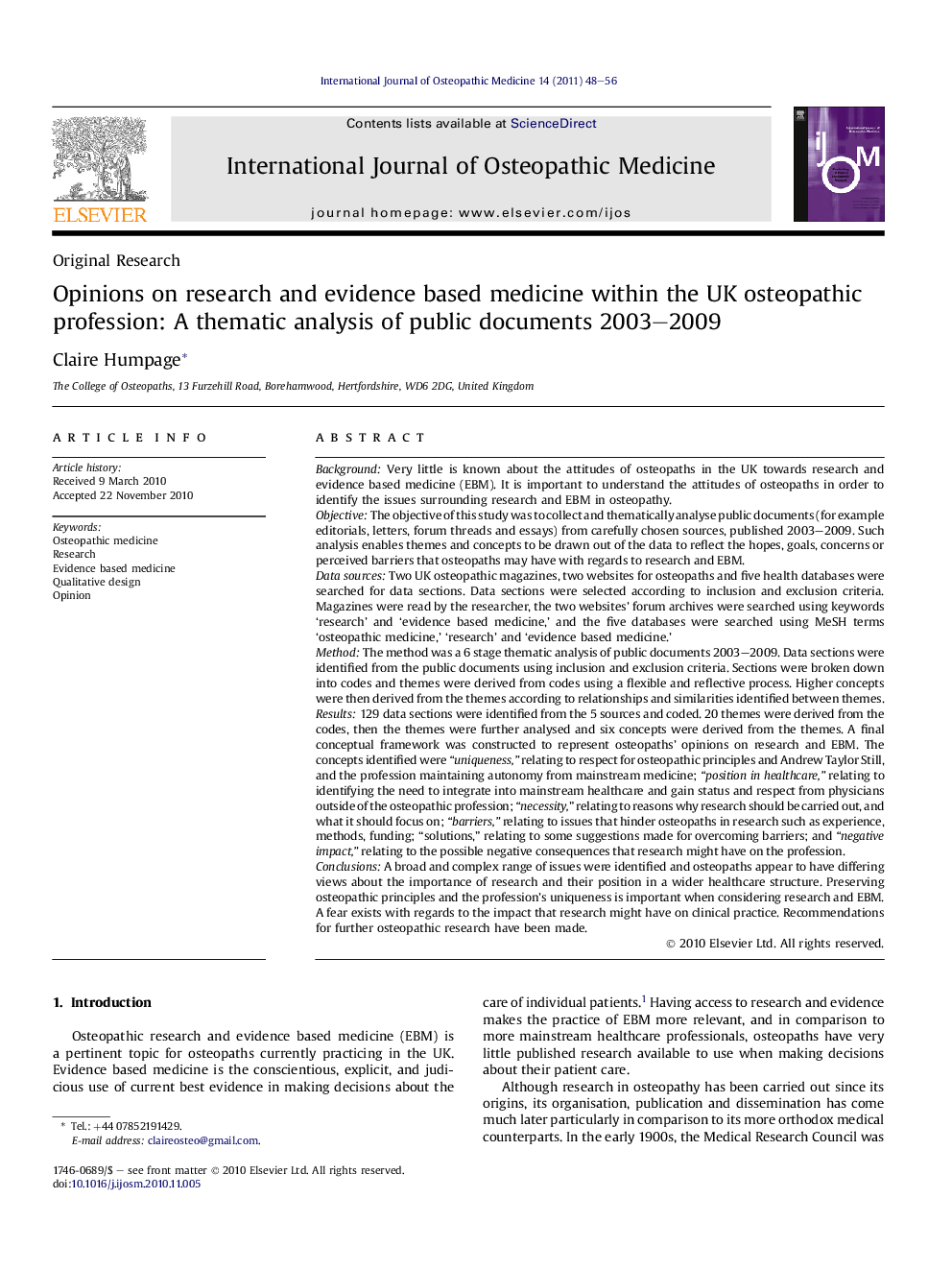| Article ID | Journal | Published Year | Pages | File Type |
|---|---|---|---|---|
| 2618737 | International Journal of Osteopathic Medicine | 2011 | 9 Pages |
BackgroundVery little is known about the attitudes of osteopaths in the UK towards research and evidence based medicine (EBM). It is important to understand the attitudes of osteopaths in order to identify the issues surrounding research and EBM in osteopathy.ObjectiveThe objective of this study was to collect and thematically analyse public documents (for example editorials, letters, forum threads and essays) from carefully chosen sources, published 2003–2009. Such analysis enables themes and concepts to be drawn out of the data to reflect the hopes, goals, concerns or perceived barriers that osteopaths may have with regards to research and EBM.Data sourcesTwo UK osteopathic magazines, two websites for osteopaths and five health databases were searched for data sections. Data sections were selected according to inclusion and exclusion criteria. Magazines were read by the researcher, the two websites’ forum archives were searched using keywords ‘research’ and ‘evidence based medicine,’ and the five databases were searched using MeSH terms ‘osteopathic medicine,’ ‘research’ and ‘evidence based medicine.’MethodThe method was a 6 stage thematic analysis of public documents 2003–2009. Data sections were identified from the public documents using inclusion and exclusion criteria. Sections were broken down into codes and themes were derived from codes using a flexible and reflective process. Higher concepts were then derived from the themes according to relationships and similarities identified between themes.Results129 data sections were identified from the 5 sources and coded. 20 themes were derived from the codes, then the themes were further analysed and six concepts were derived from the themes. A final conceptual framework was constructed to represent osteopaths’ opinions on research and EBM. The concepts identified were “uniqueness,” relating to respect for osteopathic principles and Andrew Taylor Still, and the profession maintaining autonomy from mainstream medicine; “position in healthcare,” relating to identifying the need to integrate into mainstream healthcare and gain status and respect from physicians outside of the osteopathic profession; “necessity,” relating to reasons why research should be carried out, and what it should focus on; “barriers,” relating to issues that hinder osteopaths in research such as experience, methods, funding; “solutions,” relating to some suggestions made for overcoming barriers; and “negative impact,” relating to the possible negative consequences that research might have on the profession.ConclusionsA broad and complex range of issues were identified and osteopaths appear to have differing views about the importance of research and their position in a wider healthcare structure. Preserving osteopathic principles and the profession’s uniqueness is important when considering research and EBM. A fear exists with regards to the impact that research might have on clinical practice. Recommendations for further osteopathic research have been made.
